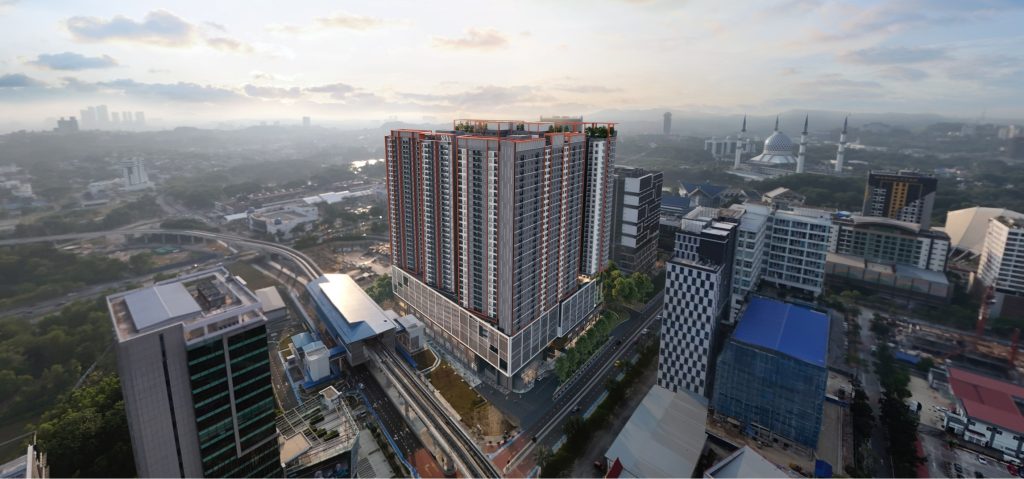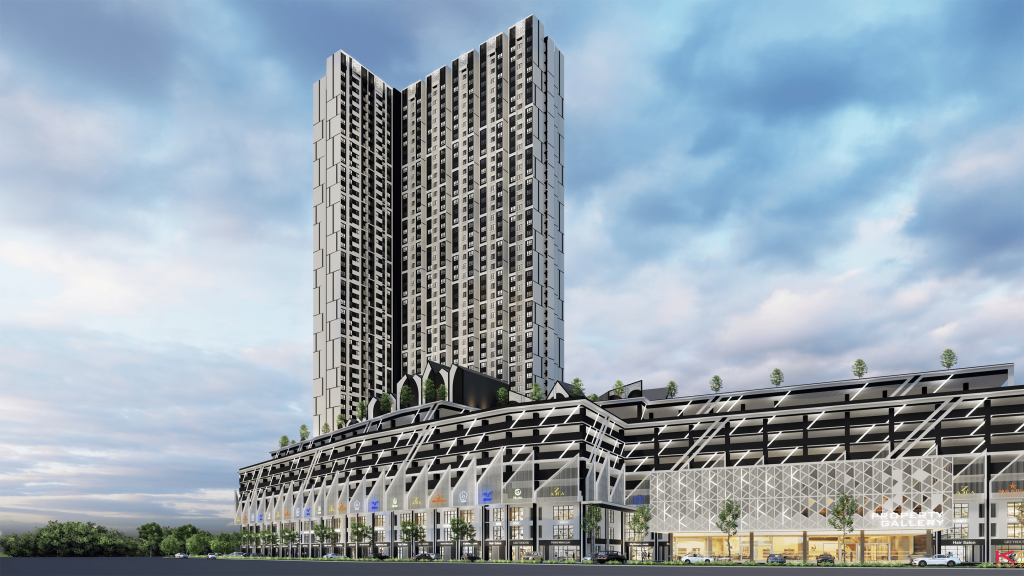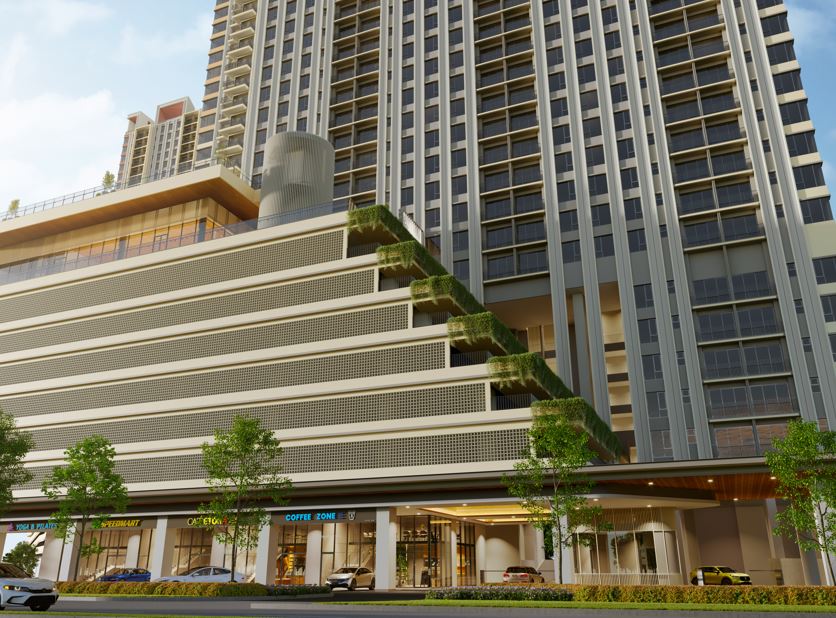With the impending arrival of Federal Budget 2019, StarProperty.my invites the public and stakeholders of different industries to contribute their thoughts on how should the government spend or save the money.
Contributed by Persatuan Penilai, Pengurus Harta, Ejen Harta & Perunding Harta Swasta Malaysia (Peps)
THE residential market is the largest sector of Malaysia property market contributing 62.8% in the first half of 2018 regarding transaction volume.
As reported by Napic, there are 5,513,494 existing residential units, 465,718 residential units under construction and 458,466 residential units that are planned and approved and not built, in Q2 2018.
The Housing and Local Government Ministry reported there is a property overhang of RM22.5bil in unsold houses nationwide, with 73% of them being affordable houses.
Housing and Local Government Minister Zuraida Kamaruddin is expected to release the hotly anticipated National Housing Policy in November of this year.
Key areas likely to be addressed in the policy will be the incorporation of three categories of affordable housing as well as the streamlining of the five housing entities namely Perbadanan PR1MA Malaysia, 1Malaysia Civil Servants Housing Program (PPA1M), UDA Holdings Bhd, Syarikat Perumahan Negara (SPNB) and the Hardcore Poor Housing Programme (PPRT).
Other areas likely to be focused on is the option of Rent-To-Own (RTO) schemes where tenants will be given the opportunity to plan and buy their house after five years of renting.
These areas have been identified as cornerstones to the Pakatan Harapan Government’s execution of its manifesto to address the following issues confronting the market:
- A surplus in the supply of expensive houses worth more than RM500,000 but a severe shortage of houses below RM250,000
- Difficulty in developing new lands due to land-hoarding by some giant developers and GLCs, causing land prices to surge
- Exploitation by crony developers who obtain government land at discounted prices but then reap high profits by building just a small number of affordable houses
- Difficulty in securing home loan among first-time homebuyers.
To counter this, the Pakatan Harapan Government in its election manifesto will look towards:
- Widening the rent-to-own scheme
- Set a time limit for the completion of constructions to avoid land hoarding
- Give incentives to smaller developers to create a level playing field
- Encourage and simplify the processes of building affordable houses on lands owned by state Islamic authorities, including Waqf land.
- Aid land status conversion if developers want to build affordable houses
- Increase quota for affordable houses
- Encourage developers to use the latest, cheaper technologies such as the Industrialised Building System (IBS).
- Coordinate with the banking sector to widen access to housing loans.
- Take over the maintenance of low-cost houses to reduce the burden on dwellers.
- Set up a National Affordable Housing Council to maintain focused attention on affordable housing agenda.
While announcements from the Minister and her Deputy, Raja Kamarul Bahrin Shah Raja Ahmad in addressing key affordability issues as well as the setting up of a comprehensive property industry database have been encouraging, it remains to be seen what concrete policies and measures will be taken to address issues affecting the industry.
With an industry already reeling from the effects of a market correction, the Government now has to balance increasing supply of mid to luxury homes where demand has been slowing against low supply of affordable housing in urban areas where a demand continues to grow.
It is clear that the Government is attempting to counter this by mooting specific policies and measures that address both these segments separately.
Extending the tenure of loan repayments and especially RTO’s are indeed creative ways to increase home ownership, but it invariably saddles buyers with more substantial debts with longer repayment times. With salary growth increasingly outpaced by inflation, this has the potential to trap the B40 and to an extent the M40 segments in a self-perpetuating debt mire.
To ensure Malaysia does not suffer a similar “developing nation” fate as China and Vietnam where rapid urbanisation has resulted in spiralling housing cost leaving many households under pressure and communities marginalised, the Government has to address the elephant in the room, fixing the land banking issue as highlighted in the manifesto is likely the long term solution to our current conundrum.
While there are short-term issues that require fixing, the challenge is on the Government to ensure it does not create a two-speed property market in the process.
Industrialised Building System (IBS)
In Malaysia the predominant construction method is the traditional building construction, relying heavily on imported foreign labour.
As a first step towards implementing Industrialised Building System, in 2018 Budget, there was an allocation of RM2.5bil for IBS to be utilised for the improvement and maintenance of dilapidated school buildings.
In 2017, IBS adoption rate in the country is reported to represent around 30% – 35% which was supposed to have reached 50% by 2018.
Currently, there are no economies of scale for the IBS industry, and there is not enough demand for adopting the IBS.
Peps would like to see government to provide more incentives and fund for the IBS industry to encourage both private and public construction to be adopted with IBS components.
It is the wish of Peps that concerted effort are taken by both government and private sector to adopt IBS predominantly in the construction of affordable homes to reduce construction cost, cut construction time and make it viable for the developers to build affordable homes.
Property Taxes
We have taken into cognizance that the new Government needs to widen the tax base to raise revenue to cover some of the previous Government massive debts, which stands at RM1.087 trillion and to cover part of the shortfall of the revenue from the withdrawal of GST and the introduction of SST. To meet the shortfall in the revenue, the government is currently toiling with the idea of other forms of taxation such as:
• Inheritance Tax
The implementation of the Inheritance Tax was mooted by the government. However, given the current downside of the property cycle, an introduction of Inheritance Tax will further dampen the property market, and it is inappropriate to introduce Inheritance Tax at this period.
If at all Inheritance Tax is in Budget 2019 Peps’ recommendation is that the minimum threshold before Inheritance Tax is to be implemented is RM10mil and the inheritance rate is 5% of RM10mil and above.
• Real Property Gains Tax
Although there is no evidence of speculation given the market has slowed down for the last two years, we recommend that the current Real Property Tax structure (last revised in 2015) be maintained until the property market stabilises.
• Stamp Duty
In the 2018 Budget, the proposal to increase the stamp duty rate from 3% to 4% for properties more than RM1mil, which was supposed to be effective on 1st January 2018, was postponed.
For the 2019 Budget, as the property market has not recovered, we recommend that the 4% stamp duty rate for properties more than RM1mil to be postponed for another year.
As of 1st January 2017, the Government have exempted 100% property stamp duty for first time home buyer for their first property up to RM300,000. This exemption expires on 31st December 2018. Peps’ wish would be to increase the limit of 100% stamp duty exemption to properties priced up to RM500,000 to facilitate and increase demand for properties below RM500,000.
Incentives for Foreign MNCs to set up the Regional Office in Malaysia
The government attract foreign MNCs to set up or relocate their regional offices to Malaysia through invest KL which may contribute to the reduction of office oversupply.
Budget 2019 Wishlist 001: Malaysians want cheaper homes
Budget 2019 Wishlist 002: A property wishlist for the new government
Budget 2019 Wishlist 003: Budgeting for the people
Budget 2019 Wishlist 004: A fresh boost for 2019
Budget 2019 Wishlist 005: It’s easier to look back than to look into the future
Budget 2019 Wishlist 006: New initiatives for first-time homebuyers
Budget 2019 Wishlist 007: Delivering affordable housing to the public
Budget 2019 Wishlist 008: Allocations to empower homebuyers
Budget Wishlist 009: Does budget 2019 pose a new dawn for the tech industry?















































